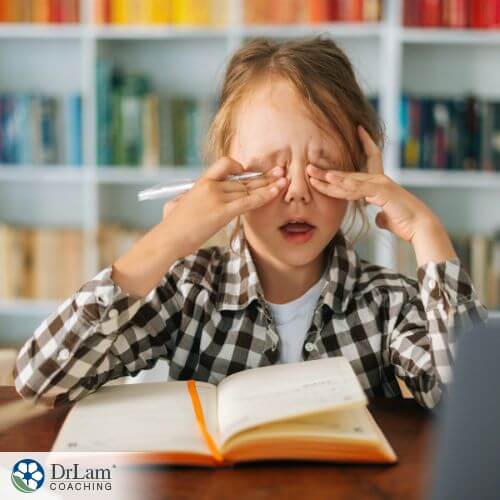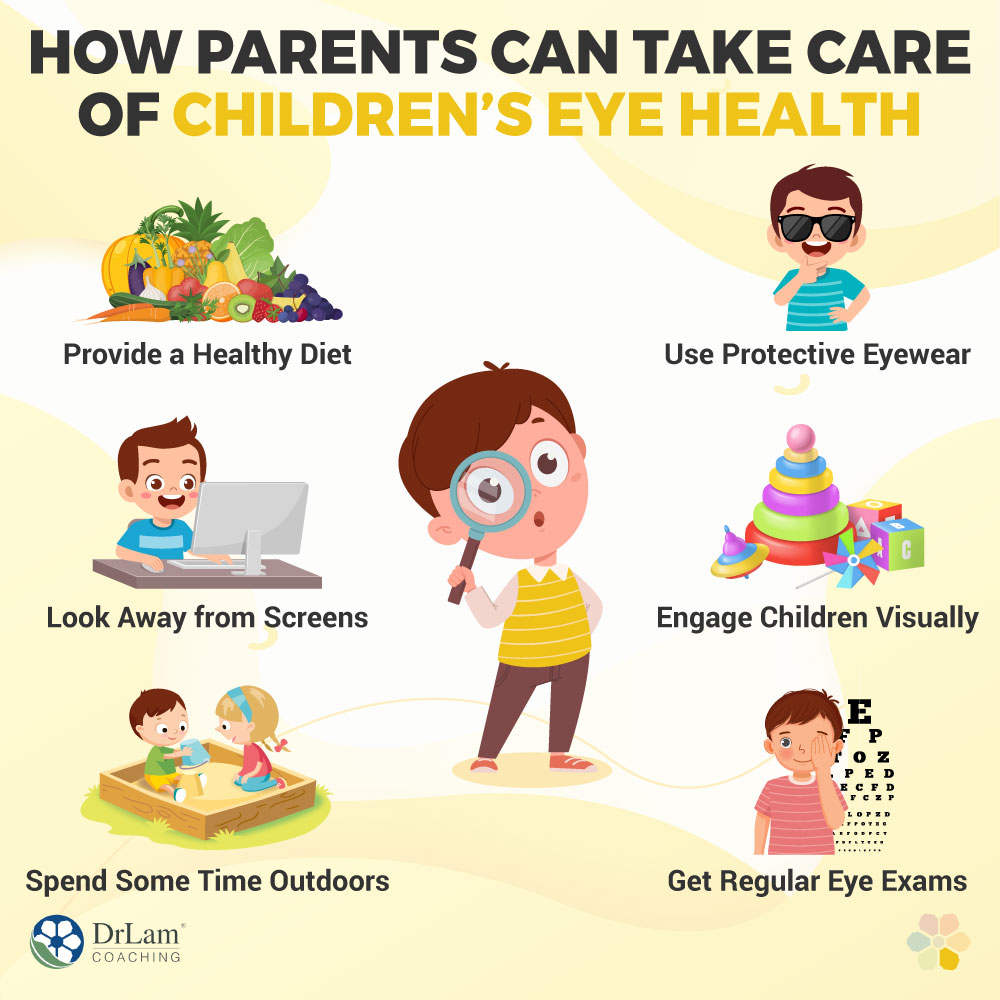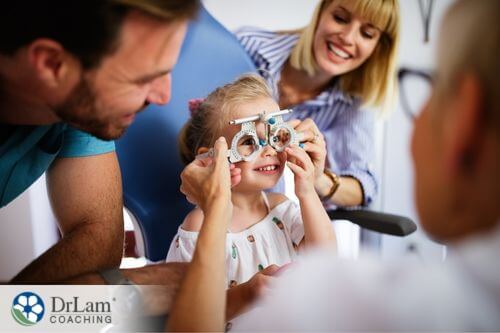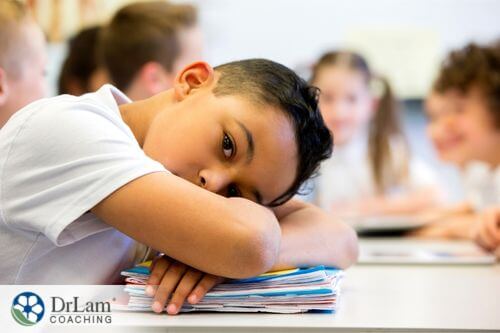 Children often can’t tell us when something is wrong with their eyes. Instead, we may not find out there is a problem until they start failing in school, get bullied by more capable classmates, or fail to make friends because they can’t see what the other kids are doing. These problems can come to define a child’s life, causing lifelong stress, and the best way to avoid them is to take children’s eye health seriously. By being attentive to the signs and making a few common-sense lifestyle changes, you can give your kids the best chance possible.
Children often can’t tell us when something is wrong with their eyes. Instead, we may not find out there is a problem until they start failing in school, get bullied by more capable classmates, or fail to make friends because they can’t see what the other kids are doing. These problems can come to define a child’s life, causing lifelong stress, and the best way to avoid them is to take children’s eye health seriously. By being attentive to the signs and making a few common-sense lifestyle changes, you can give your kids the best chance possible.
Children may exhibit some everyday habits that can signify that something is wrong with their vision. Here are some common signs of eye problems to look for in children:
If you notice these symptoms repeatedly, you should get your child assessed for vision issues. You may be referred to an eye expert if any medical condition is suspected.
The Center for Disease Control reported that about 25% of preschool-aged children have vision problems that have not received a proper evaluation. In addition, some other conditions show up at different times during a child’s development. Some of these common eye problems in children are:
Refractive errors cover eye conditions like hyperopia (farsightedness), myopia (nearsightedness), and astigmatism (difference in the shape of the lens or cornea). Children with refractive errors suffer blurred vision and may find it hard to read or complete school assignments. In addition, since they have to focus hard on things, it may lead to frequent strain on the eyes and headaches.
Refractive errors are caused by incorrect light focus on the retina. The retina is the part of the eye that receives light and converts it to neural signals sent to the brain. When the light received is focused incorrectly, the visual image can be blurry and indistinct. A qualified eye consultant will determine this condition after conducting some tests on your child.
Convergence insufficiency is another common vision problem. Convergence insufficiency affects how children’s eyes work when they hold an object close to them. Normally, when you hold an object close to your eyes, both eyes turn inward. In this condition, however, one eye turns outward. This may be caused by a nerve problem in the eye. Many eye specialists look out for this condition in children because childhood is the most common period of occurrence.
The standard medical term is strabismus, but non-experts know this condition as crossed eyes. Parents and teachers can easily detect this problem in a child when they notice some symptoms. The most obvious sign is when a child struggles to keep both their eyes on the same object at once.

 As a parent, you can take steps to help protect your children’s eye health. While many eye conditions are not preventable, you can watch for signs and take your children to regular health check-ups. In addition, providing a healthy lifestyle may help reduce the incidence of some eye problems.
As a parent, you can take steps to help protect your children’s eye health. While many eye conditions are not preventable, you can watch for signs and take your children to regular health check-ups. In addition, providing a healthy lifestyle may help reduce the incidence of some eye problems.
Parents must be very conscious of their children’s diet, especially during their early years. Children need to have a balanced diet that will enable them to grow and support all parts of their bodies, including their eyes. You can include vegetables, fruits, and other food that provide vitamins and minerals in your children’s diet to improve their eye health. Foods high in beta carotene, such as carrots and pumpkins, along with purple berries like blueberries, are good choices for eye health.
You can also talk to your doctor about the best diet to strengthen your children’s eye health. They will recommend food rich in vitamins and minerals to strengthen the muscles that make up the eye. An eye specialist can also suggest supplements to include in their diet for better vision.
Various parts of the eyes develop as children grow. Focusing on close objects, like a screen, for long periods can cause eye strain and may influence developing eyes.
Experts advise parents to instill the 20-20-20 rule in their children. This rule stipulates looking away from near-sighted activities every 20 minutes to looking at something 20 feet away for 20 seconds. This same practice is a good idea for adults as well.
Spending time outdoors lets your children relax their eyes and their bodies. After spending several hours per day staring at books in school and screens at home, getting outside is a great way to focus on far-away sights and get some exercise. Engaging in outdoor activities will also enable your children to relax the muscles in their eyes.
While playing outdoors is good for your children’s eye health, it can also threaten them. For example, the UV rays in sunlight can harm children’s eye health. Therefore, in bright sunlight, you should have your children wear protective eyewear when going out. This could be sunglasses or a baseball cap for a sunny afternoon or goggles for a sports hangout.
The latter option is even more critical. Children often get hurt while playing sports, and some injuries can happen to the eyes. You may want to outfit your child with protective goggles to protect them from stray objects like a flying ball.
Help your children build their vision by engaging them visually. Start from when they are babies and continue until well into their adolescence. An excellent way to engage children visually is to buy toys with interesting colors and patterns or discuss these around you. Let them use paints and different colored art supplies.
You can also improve your children’s eye health by suggesting they view objects from different angles or sharpen their peripheral vision. In addition, some children experts recommend engaging them in games that will improve their hand-eye coordination.
Finally, you should ensure that your children get regular eye exams. The best way to identify a problem before it gets worse is to see your doctor. So if your child is not exhibiting usual mannerisms, an expert can assess them and determine if it is related to eye problems. In case of a problem, the consultant will do an evaluation and advise you on the best course of action.
 Poor vision has many effects on a children’s overall well-being. An undiagnosed eye condition can lead to problems in school, problems making friends, and even bullying or behavior issues. All these can lead to chronic stress in children, which puts their bodies into constant fight-or-flight mode.
Poor vision has many effects on a children’s overall well-being. An undiagnosed eye condition can lead to problems in school, problems making friends, and even bullying or behavior issues. All these can lead to chronic stress in children, which puts their bodies into constant fight-or-flight mode.
In extreme situations, this can lead to adrenal fatigue. When adrenal fatigue sets in, their bodies produce fewer hormones regulating stress. As a parent, it becomes necessary for you to find a way to reduce your child’s stress.
One way to do that is to engage your child in fun and relaxing activities like yoga. It would be beneficial to find the root cause of the stress, which in turn will help deactivate the NeuroEndoMetabolic Stress Response (NEM), allowing the body to deal with stress more effectively.
If children’s eye health is a problem, it may be necessary to address the eye problems first, and then address the other related stressors that the eye issues have caused. This could mean getting extra tutoring in school, for example, or helping your child choose new activities to make new friends. The best way to avoid these stressors is to address eye problems before they create additional issues for your child.
Children’s eye health can have a big effect on their development, and children may not recognize that they can’t read because they can’t see the letters, for example. Therefore, parents, teachers, and other adults who spend time with children must be conscious of the signs of eye problems in children. By paying attention, they can detect signs of any problems early.
Once you suspect your child has poor eye health, you should consult a specialist immediately. Addressing these issues as soon as possible is key to avoiding other problems in children.
If you want to know more about exploring natural remedies for children’s eye health, reach out to the team at Dr. Lam Coaching. We offer a free, no-obligation phone consultation at +1 (626) 571-1234. In addition, we will privately discuss your child’s symptoms and various options. You can also send us a question through our Ask The Doctor system by clicking here.

Retinax is great natural aid to improve vision
You can improve your children’s eye health through attentiveness. When you see your children exhibiting behaviors such as squinting, problems in school, or headaches, consult a doctor for assessment. You can also help support them by providing a healthy diet, encouraging outside time, and taking them to regular check-ups.